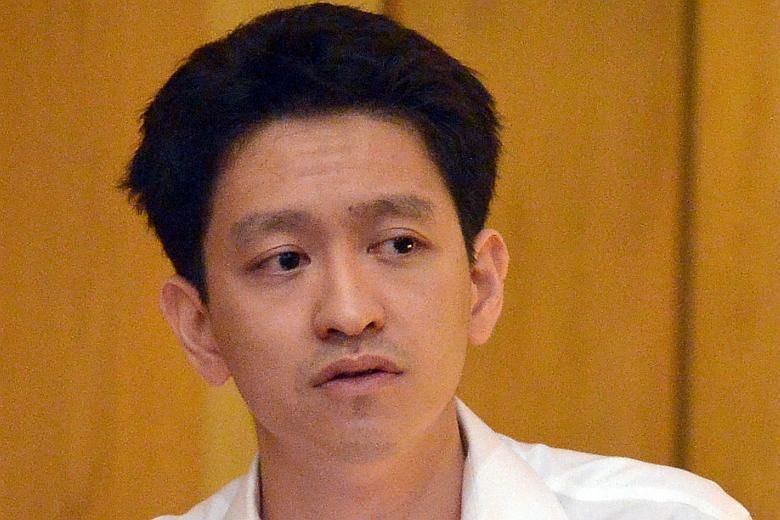Li Shengwu's lawyers to apply to set aside court order, pre-trial conference for contempt of court case on Jan 4
Sign up now: Get ST's newsletters delivered to your inbox

The Attorney-General's Chambers had earlier served papers for contempt of court against Mr Li Shengwu.
PHOTO: ST FILE
Seow Bei Yi, Nur Asyiqin Mohamad Salleh
Follow topic:
SINGAPORE - Mr Li Shengwu's lawyers are contending that the court order allowing the Attorney-General's Chambers (AGC) to serve papers on their client in the United States should not stand.
The AGC had earlier served papers for contempt of court against Mr Li, who is the eldest son of Mr Lee Hsien Yang and nephew of the Prime Minister Lee Hsien Loong.
A pre-trial conference for the case was held at the High Court on Monday (Dec 4), attended by Senior Counsel Francis Ng for the AGC and Mr Li's counsel, Mr Abraham Vergis of Providence Law.
In a statement on Monday, Providence Law said it had informed the court that it will apply to set aside the order that allowed the AGC to personally serve papers on Mr Li, 32, who is a junior fellow at Harvard University.
Noting that the court papers filed by the AGC exceeded 1,300 pages, the law firm said: "We explained we needed time to address the novel grounds which the AGC relied on to justify serving the papers out of jurisdiction."
The court has directed that Mr Li file his application by Dec 22, and the next pre-trial conference for the case is expected to take place on Jan 4.
Mr Vergis declined to comment further when contacted.
The case centres on a July 15 Facebook post by Mr Li, in which he said"the Singapore Government is very litigious and has a pliant court system", and that foreign media had been cowed into self-censorship because of previous legal action.
The post was related to a public dispute between his father Lee Hsien Yang and aunt Lee Wei Ling on one side, and his uncle on the other, over the fate of their late father's Oxley Road Home.
The AGC had written to Mr Li, calling the post an "egregious and baseless attack" on the judiciary and asking him to apologise. He declined, saying his post was private.
In a five-page letter he sent in reply, he contended that the post did not constitute contempt of court when read in context. He added that he had amended it to remove any misunderstanding, but would not take it down.
Among other things, Mr Li said his criticism was directed not at the judiciary but at the Singapore Government's "aggressive use" of legal rules like defamation laws to constrain reporting by international media.
The AGC received permission from the court to initiate contempt of court proceedings in August.
"By applying to set aside the order, what Mr Li's lawyers are saying is that the service (of the papers) could have been improper or defective," said veteran lawyer Amolat Singh.
He was referring to the ex parte - or one-sided - order that the AGC obtained so they could serve papers on Mr Li in the US.
"When it is ex parte, the court only listens to one party. Now, Mr Li will be able to put forward his own reasons on why this service may have been defective," added Mr Amolat.
"If the application goes through, the AGC could have to follow the proper procedure... If they manage to set it aside, technically, the papers would not have been served to Mr Li yet."
Lawyer Choo Zheng Xi said a similar appeal was made in the case of Mr Alex Au, whom he acted for when the socio-political blogger was accused of contempt of court in 2013. Mr Au was subsequently fined $8,000 for comments that undermined confidence in the judiciary.
"The Judge, at first instance, did not give AGC permission to even start proceedings against Mr Au in relation to one statement of alleged contempt of court," Mr Choo recalled.
He added that the case against Mr Li cannot proceed if the application to set aside the ex parte order goes through.
If so, the AGC could appeal that decision to the Court of Appeal, or re-apply to court in a way that is procedurally correct, he said.

